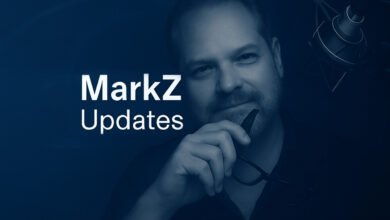Tishwash: Iraq and the Kurdistan Region reached an oil agreement
The Iraqi Council of Ministers voted on two decisions on the mechanism of dealing with foreign oil companies and the issue of oil in the Kurdistan Region.
The Kurdistan Regional Government (KRG) and the Iraqi Federal Government have reached an agreement on the handover of Kurdistan Regional Government (KRG) oil to Baghdad. According to the new agreement, only 50,000 barrels of oil produced in the Kurdistan Region will be recycled for domestic consumption, while the rest will be handed over directly to SOMO.
The Iraqi Council of Ministers has welcomed the latest steps taken by the Oil Ministry and the Ministry of Natural Resources to resume oil exports.
The Council of Ministers decided that the oil extraction fee for foreign companies, which is set at $ 16 per barrel, will no longer be paid in cash and instead, the amount of oil equivalent to their financial entitlements and companies themselves will be responsible for selling it It is oil in the markets.
Second: Approval of a tripartite agreement between the Kurdistan Region, Baghdad and companies: The Iraqi Council of Ministers gave initial approval to conclude a tripartite agreement between the Kurdistan Regional Government, the Iraqi Federal Government and foreign oil companies.
The condition for implementing this decision is that the Iraqi government submits the contract to the advisory committee of the Iraqi Oil Ministry. The committee is expected to give its final answer within the next 48 hours, so that the tripartite deal can be formalized and go into effect.
Tishwash: cover for currency smuggling
The Shadow Economy in Numbers: Tons of Gold Worth Billions of Dollars to Make Up for the “Black Dollar” Shortage
In a volatile economic landscape dominated by weak oversight and a fluctuating local currency, gold in Iraq has transformed from a traditional commodity into a central financial instrument, simultaneously reflecting internal crises and external conflicts.
Figures announced for the first half of 2025 revealed imports exceeding $30 billion from five major countries, led by the UAE with $10.5 billion, followed by China with $8.8 billion, Turkey with $4.9 billion, the European Union with $3 billion, and India with $1.8 billion.
Among these imports, precious metals—led by gold—were valued at $3.3 billion, confirming that this sector now occupies an exceptional position in the structure of Iraqi trade.
Given the restrictions imposed by the US Treasury Department since 2023 on bank transfers, gold has emerged as an alternative channel to compensate for the dollar shortage. Instead of outflowing hard currency through official remittances, importing gold in large quantities has become a means of recirculating funds, whether by re-exporting it to neighboring countries such as Turkey, bartering it for Iranian goods, or even using it as an asset that can be easily liquidated away from the banking system.
According to economic estimates, gold has become a “practical cover” for dollar smuggling operations, as it is imported through official outlets but redirected through unregulated financial channels. This dual role makes the precious metal not just a commodity, but an alternative instrument that rivals the dollar in influence.
Previous data reveals that 2024 marked a shocking turning point, when the value of gold imports reached $12.5 billion, equivalent to 16% of the country’s total imports. This figure is roughly equivalent to the Central Bank’s entire gold reserve of $18 billion. In the absence of accurate data on the entry points through which the gold was imported or its internal distribution mechanisms, questions have grown about the final destination of these quantities:
Was it actually consumed in the local market, re-exported, or used as a barter instrument in undisclosed trade relations?
This shift is no longer a purely financial matter. In the markets, rising gold prices have directly impacted daily life. A Baghdad Today correspondent observed a widespread recession in goldsmith shops, with the price of a 21-karat gold misqal exceeding 730,000 dinars, while 24-karat gold jumped to more than 830,000 dinars, coinciding with the global price of an ounce exceeding $3,600.
These figures have prompted many young people to postpone marriage and imposed new burdens on families with the inflated dowries. Social affairs experts warn that the phenomenon is no longer merely a market crisis, but rather a threat to the fabric of society by deepening the phenomenon of aversion to marriage and delaying the age of starting a family.
Given these facts, economic expert Manar Al-Abidi stressed that “government efforts to control imports face significant challenges, particularly with the attempt to include all goods in the reform at once.” He called for “focusing primarily on high-value goods such as gold, and linking transactions with them to transparent electronic payment mechanisms that allow tracking of sales and purchases and identifying the ultimate beneficiary.” According to institutional estimates, automating the gold sector alone is sufficient to expose financial loopholes and close the door to its exploitation as a cover for parallel operations.
From a different perspective, economic expert Nasser Al-Kanani believes that the crisis is not limited to Iraq alone. “The recent rise in gold prices in the Iraqi market is inseparable from the global wave affecting the precious metal,” Al-Kanani says, explaining that “the local market is affected by a dual effect: the movement of international stock exchanges and the dollar exchange rate on the parallel market.”
This approach reveals that Iraq, despite its unique crises, remains part of a global cycle that makes gold a safe haven for investors amid escalating geopolitical tensions. He also notes that the price rise is not just a local result, but a reflection of global shocks.
In a move described as a strategic shift, Al-Kanani revealed that “Iraq’s purchase of more than 20 tons of gold in one year, and its rise to seventh place globally in this field, reflects a calculated move by the Central Bank to protect the national economy from fluctuations in foreign exchange rates.”
This move, according to Al-Kanani, “gives Iraq greater flexibility in managing monetary policy, enhances confidence in the local economy, and may positively impact the value of the dinar and market stability.”
However, this path remains fraught with risks, as gold could transform from a strategic asset into an open channel if smuggling operations continue or oversight is absent.
In conclusion, gold in Iraq has transcended its status as a commodity and has become a crossroads between three possibilities: an economic buffer, a pressing social burden, and a card of political influence. However, the lack of strict oversight also makes it an open loophole that could transform into a permanent channel for dollar smuggling or bartering with neighboring countries, away from the banking system.
This exposes the country to further exposure to external pressures. The future of this resource will not be determined by the volume of tons entering the market, but rather by the state’s ability to control its flow and prevent its leakage into the shadow economy. This would transform it from a source of concern to an element of strength, and from a parallel tool for currency smuggling to a strategic asset that reinforces confidence in the dinar and Iraqi financial policy, according to observers.
Tishwash: Judicial expert: Implementing Article 140 will solve Khanaqin’s problems
Judicial expert Arkan Kakayi stressed the need to implement Article 140 of the Constitution to address the problems facing Khanaqin district, emphasizing the need to hold those who fail to perform their duties accountable and to monitor the implementation of projects in the district.
During his appearance on the Iraqi Affairs program with Faiq Yazidi, Kakai said that Khanaqin is a disputed area and a city of peaceful coexistence. He added that Khanaqin suffers, especially during the summer, from power outages, water scarcity, and a lack of job opportunities and appointments for young people and university graduates.
He pointed out that the failure to implement Article 140 of the Constitution is the most prominent problem facing Khanaqin district, stressing that implementing Article 140 has become a dream for the people of Khanaqin and other disputed areas
Arkan Kakayi: Khanaqin has the makings of a province
Kakayi added that there has been no practical step so far from either the Kurdistan Region or the federal government to implement Article 140 of the Constitution, stressing that implementing Article 140 is a popular demand of the people of Khanaqin to address many of the judiciary’s problems, including the non-recognition of graduates of Garmian University, agricultural land issues, and others.
He called for resolving the judiciary’s problems and for there to be a clear path to achieving this.
Kakai pointed out that there are many problems regarding agricultural lands in Khanaqin, noting that the regime of the late Saddam Hussein deported many Kurdish citizens from the district, displacing them and confiscating their lands at that time. He noted that they demanded the formation of special committees to address this problem, expressing his hope that solutions would be reached and that the judiciary would move towards a better outcome on this issue.
Arkan Kakayi: There are many problems regarding agricultural lands in Khanaqin.
Kakai called for transforming Khanaqin district into a governorate, stressing that transforming the sub-districts into districts within Khanaqin’s borders threatens the district and its geographical area. He pointed out that the late President Mam Jalal, the safety valve of Iraq, used to say, “Welcome to Khanaqin Governorate.”
He emphasized that the people of Khanaqin hope that their district will be transformed into a governorate, stressing that the components of a governorate are available in Khanaqin district.
Kakayi pointed out that the disagreements between the federal government and the Kurdistan Regional Government regarding Khanaqin stem from the failure to implement Article 140 of the Constitution, stressing that if this constitutional article were implemented, there would be no disagreements between the two sides regarding Khanaqin.
He emphasized that Khanaqin encompasses all ethnicities and sects, all of whom demand the implementation of Article 140 because its implementation is the final solution to the district’s problems and the suffering of its people.
Arkan Kakayi: Khanaqin’s water is polluted
On the other hand, Kakai pointed out that Khanaqin district suffers from contaminated drinking water, and citizens buy bottled water because the district’s water is not fit for drinking and the water project in Khanaqin is old. He criticized the lack of oversight of the departments and institutions responsible for providing water to citizens, stressing that they are demanding the implementation of a new water project that serves the district’s residents.
He also pointed out that the district is also suffering from an electricity crisis, as electricity has become non-existent and private generators are the ones that supply electricity to citizens’ homes.
Regarding solutions and remedies for the judiciary’s problems, Kakai said the judiciary needs to implement numerous projects, noting that a tourism project could be implemented at the Alwand Dam to attract tourists to the judiciary.
He also highlighted the need to implement service projects in the judiciary, emphasizing the need to hold accountable those who fail to perform their duties and to enact laws that punish those who obstruct projects and their implementation.
Mot: .. In Case YOu Ever Wondered – The Truth Be Known!!!

Mot: Ya Gots to Do – What Ya Gots to Do!!!!




